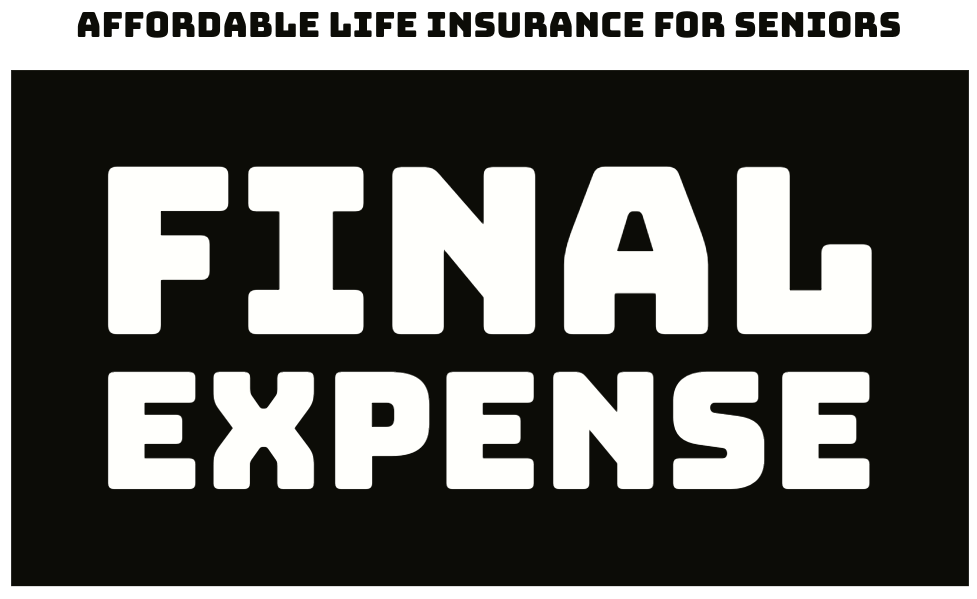Have you considered how your parents will cover their final expenses? Burial insurance offers a solution, but securing the right policy can be challenging. This guide will walk you through understanding burial insurance, assessing your parents’ needs, and choosing the right policy. We’ll cover different types of policies offered by top life insurance companies like Mutual of Omaha, including final expense life insurance, explain how to navigate the application process, and provide tips for discussing this sensitive topic with your parents. By the end, you’ll be equipped to make informed decisions about funeral cover insurance, ensuring your parents have the financial protection they need.
Understanding Burial Insurance: Why It’s Important for Your Parents

As a life insurance advisor, I understand the importance of burial insurance for your parents. This specialized form of insurance for seniors offers financial protection against funeral costs. We’ll explore how burial insurance works, its benefits, common misconceptions, and the financial impact of funeral expenses. By understanding these aspects, you can make informed decisions about securing coverage from a reputable life insurance company, ensuring your parents’ final wishes are honored without burdening your family’s finances.
What Is Burial Insurance and How Does It Work?
Burial insurance is a specialized form of life insurance designed to cover funeral and burial expenses. As an insurance advisor, I often recommend this option to clients concerned about their parents’ final expenses. This type of insurance provides a death benefit specifically intended to cover costs associated with end-of-life arrangements.
The way burial insurance works is straightforward: it’s a contract between the insured and the insurance company. Policyholders pay regular premiums, and upon their death, the insurance company pays out the agreed-upon benefit to the designated beneficiary. This payout can then be used to cover funeral costs, outstanding debts, or other final expenses. It is important to determine how much life insurance is needed to ensure these expenses are fully covered.
One notable feature of burial insurance is that it’s often easier to qualify for than traditional life insurance policies. Pre-need funeral insurance is a similar option, where the policyholder pre-pays for funeral services at today’s prices. Here’s a comparison of these options:
|
Burial Insurance |
Pre-need Funeral Insurance | |
|---|---|---|
|
Payout |
Cash benefit to beneficiary |
Direct payment to funeral home |
|
Flexibility |
High |
Limited to pre-arranged services |
|
Price lock |
No |
Yes |
Benefits of Securing Burial Insurance for Your Parents
Securing burial insurance for your parents offers significant benefits, primarily by reducing financial risk. As a life insurance advisor, I’ve seen how burial expense insurance protects families from unexpected costs during an emotional time. This coverage ensures that your parents’ final wishes can be honored without placing a financial burden on loved ones.
Burial life insurance policies are known for their accessibility, especially for seniors. Unlike traditional life insurance, these policies often have simplified underwriting processes, making it easier for older adults or those with health issues to obtain coverage. This accessibility is crucial for ensuring that your parents can secure the protection they need.
A key advantage of funeral insurance policies is the peace of mind they provide. By having a dedicated policy in place, you and your parents can focus on what truly matters – spending quality time together – without worrying about future expenses. Here’s a breakdown of the benefits:
|
Description | |
|---|---|
|
Financial Protection |
Covers funeral and burial costs |
|
Accessibility |
Easier to qualify for than traditional policies |
|
Peace of Mind |
Reduces stress about future expenses |
|
Flexibility |
Can be used for various end-of-life expenses |
Common Misconceptions About Burial Insurance
As a life insurance advisor, I often encounter misconceptions about burial insurance. One common myth is that burial insurance is prohibitively expensive. In reality, funeral insurance costs can be quite manageable, especially when compared to the potential financial burden of unexpected funeral expenses.
Another misconception is that underwriting for burial insurance is complex and time-consuming. In fact, many burial insurance policies offer simplified underwriting processes, making it easier for seniors to qualify. The best funeral insurance providers often have streamlined application procedures, allowing for quick approvals.
Some people believe that burial insurance policies are inflexible and can only be used for specific funeral expenses. However, most policies provide a cash benefit that can be used for various end-of-life expenses, offering flexibility to the beneficiaries. Here’s a breakdown of common misconceptions and the reality:
|
Misconception |
Reality |
|---|---|
|
Burial insurance is too expensive |
Costs are often manageable and can be tailored to budget |
|
Complex underwriting process |
Many policies offer simplified underwriting |
|
Limited use of policy benefits |
Cash benefit can be used for various end-of-life expenses |
The Financial Impact of Funeral Expenses Without Insurance
As a life insurance advisor, I’ve seen firsthand the financial strain that funeral expenses can place on families without proper coverage. The funeral cost can easily exceed $10,000, which can be a significant burden for many households, especially if they’re unprepared. This unexpected expense can deplete retirement savings or force families to take on debt, impacting their long-term financial stability.
Without a final expense insurance policy in place, families often struggle to cover these costs, particularly if the deceased didn’t have substantial savings. Seniors’ funeral insurance is designed to alleviate this burden, providing a safety net that ensures loved ones aren’t left scrambling to cover expenses during an already difficult time. The peace of mind that comes with knowing these costs are covered can be invaluable.
It’s important to consider the rising costs of funerals and how they can outpace general inflation. Interest rates on loans to cover these expenses can be high, adding to the financial strain. By securing a life insurance policy specifically for final expenses, families can protect themselves from these rising costs and avoid the stress of financial uncertainty during bereavement. Here’s a breakdown of potential financial impacts:
|
Expense Type |
Average Cost |
Potential Impact Without Insurance |
|---|---|---|
|
Funeral Service |
$7,000 – $12,000 |
Depletion of savings, high-interest debt |
|
Burial Plot |
$1,000 – $4,000 |
Unexpected out-of-pocket expense |
|
Headstone |
$1,000 – $3,000 |
Additional financial strain on family |
Time passes. Parents age. Now, we must look closer at their needs and options.
Assessing Your Parents’ Needs and Eligibility

As a life insurance advisor, I’ll guide you through assessing your parents’ needs and eligibility for burial insurance. We’ll evaluate their health status and age, determine coverage amounts, and understand eligibility criteria. I’ll compare guaranteed issue vs. simplified issue policies and prepare you for potential health questions. This process, informed by data from the National Association of Insurance Commissioners, ensures you find the right permanent life insurance from a reputable insurance company to cover cemetery and final expenses.
Evaluating Your Parents’ Health Status and Age
When evaluating your parents’ eligibility for burial insurance, I always start by assessing their current health status and age. These factors play a crucial role in determining the type of life insurance plans available to them. I’ve found that even those with pre-existing conditions can often qualify for certain policies, which is reassuring for families concerned about coverage options.
Age is another important consideration in this process. While many insurance policies have age limits, I’ve helped clients find suitable burial insurance for parents well into their 80s. It’s important to note that premiums typically increase with age, so securing a policy sooner rather than later can lead to more favorable rates.
In my experience, a thorough health assessment can also help identify policies that offer the best value. For instance, some insurers may offer lower premiums for healthier individuals, while others specialize in coverage for those with specific health conditions. This evaluation process ensures we find a policy that balances cost with the level of coverage needed for funeral expenses, including cremation if that’s the preferred option.
Determining the Coverage Amount Needed
When determining the coverage amount needed for final expense insurance, I always advise my clients to consider the full scope of potential costs. This includes not only the funeral home expenses but also costs associated with the grave, headstone, and any outstanding medical bills. In the United States, these expenses can vary significantly depending on location and personal preferences.
I recommend conducting a thorough assessment of your parents’ wishes and local funeral costs. This process helps ensure that the beneficiary receives adequate funds to cover all necessary expenses without financial strain. Remember, the goal is to provide peace of mind and financial protection during a difficult time.
Based on my experience, most families find that a coverage amount between $10,000 and $25,000 is sufficient for final expenses. However, it’s crucial to tailor this amount to your specific circumstances. Here’s a breakdown of typical costs to consider:
Funeral home services
Casket or cremation urn
Cemetery plot or columbarium niche
Headstone or grave marker
Transportation costs
Death certificates and permits
Outstanding medical bills or debts
Understanding Eligibility Criteria for Burial Insurance
As a life insurance advisor, I’ve helped numerous consumers understand the eligibility criteria for burial insurance. Generally, these policies have more lenient requirements compared to traditional life insurance, making them accessible to a broader range of applicants. The primary factors considered are age and residency, with most insurers offering coverage to individuals between 50 and 85 years old.
One of the key advantages of burial insurance is that it often doesn’t require a medical exam. This makes it an excellent option for those who might have health concerns that would typically make obtaining life insurance challenging. However, applicants should be prepared to answer some health questions, as these can impact the type of policy and premium rates available.
When considering burial insurance, it’s crucial to factor in your budget and the potential expense. I always advise my clients to carefully review the payment terms and ensure they can comfortably manage the premiums long-term. Remember, the goal is to provide financial protection for your family without creating undue financial strain in the present.
Comparing Guaranteed Issue vs. Simplified Issue Policies
When comparing guaranteed issue and simplified issue policies for burial life insurance for seniors, I always start with the key differences. Guaranteed issue policies offer acceptance without health questions, but typically come with higher premiums and a waiting period before full benefits kick in. Simplified issue policies, on the other hand, require answering a few health questions but often provide immediate coverage and lower costs.
In my experience, simplified issue policies often offer better value for most seniors. These policies may accumulate cash value over time, potentially providing a source of dividends or loans if needed. However, for clients with serious health conditions, guaranteed issue policies can be a lifeline, ensuring they have some form of coverage for burial expenses.
When advising clients, I always emphasize the importance of considering both the immediate cost and long-term value of each policy type. While guaranteed issue policies might seem appealing due to their no-questions-asked approach, simplified issue policies often provide more comprehensive coverage and better financial benefits over time. It’s crucial to gather all necessary information and weigh the options carefully to make an informed decision.
Preparing for Potential Health Questions
When preparing for health questions related to burial insurance policies, I advise my clients to be honest and thorough. Most insurance companies, including those in New York City, ask about common health conditions like heart disease, diabetes, and cancer. It’s crucial to disclose all relevant health information to ensure the policy remains valid.
I’ve found that many seniors worry about being declined for a burial policy due to their health. However, I reassure them that burial insurance for seniors often has more lenient health requirements compared to traditional life insurance. Even with pre-existing conditions, options are usually available, though premiums may be higher.
To help my clients prepare, I provide a list of typical health questions they might encounter. This preparation helps reduce anxiety and ensures a smoother application process. Here’s a table outlining common health questions and their importance:
|
Health Question |
Importance |
|---|---|
|
Current medications |
Indicates ongoing health issues |
|
Recent hospitalizations |
Shows severity of health conditions |
|
Smoking status |
Affects premium rates |
|
Family health history |
Indicates potential genetic risks |
Your parents’ needs are clear. Let’s explore the policies that fit them.
Exploring Different Types of Burial Insurance Policies

I’ll guide you through various burial insurance options, including whole life and term policies, pre-need funeral insurance plans, and affordable funeral insurance options. We’ll compare the pros and cons of each policy type and explore additional riders and benefits. This overview will help you, as a customer, choose the best funeral insurance plan for your parents’ needs.
Whole Life Burial Insurance Options
Whole life burial insurance policies offer lifelong coverage and are a popular choice among my clients. These AARP-endorsed insurance policies provide a guaranteed death benefit and accumulate cash value over time. I often recommend them to parents seeking stable, long-term life insurance coverage for final expenses.
One key advantage of whole life policies is their fixed premiums, which remain constant throughout the policyholder’s lifetime. This feature makes budgeting easier for seniors on fixed incomes. Additionally, the cash value component can be accessed through a loan if needed, providing financial flexibility during retirement years.
When discussing whole life burial insurance with clients, I emphasize the importance of choosing an appropriate coverage amount. Based on my experience, I suggest considering the following factors:
Anticipated funeral and burial costs
Outstanding debts or medical bills
Additional financial support for beneficiaries
Inflation and potential future cost increases
Term Life Insurance for Burial Expenses
Term life insurance can be an affordable option for burial expenses, offering coverage for a specific period. I often recommend this type of final expense insurance coverage to clients who want to ensure their funeral costs are covered during their later years. Term policies typically provide higher coverage amounts at lower premiums compared to whole life policies.
When discussing term life insurance for burial expenses, I emphasize the importance of choosing the right term length. For most of my clients, a term that extends into their 80s or 90s is ideal to cover funeral and urn costs. However, it’s crucial to understand that premiums may increase at policy renewal, which can be challenging for those on fixed incomes.
One advantage of term life insurance for burial expenses is its flexibility. Clients can often convert their term policy to a permanent policy later if their needs change. Here’s a comparison of term and whole life policies for burial expenses:
|
Feature |
Term Life Insurance |
Whole Life Insurance |
|---|---|---|
|
Coverage Duration |
Specific term (e.g., 10, 20, 30 years) |
Lifetime |
|
Premiums |
Initially lower, may increase at renewal |
Fixed, typically higher |
|
Cash Value |
No |
Yes |
|
Convertibility |
Often convertible to permanent policy |
N/A |
Pre-Need Funeral Insurance Plans
As a life insurance advisor, I often recommend pre-need funeral insurance plans to clients looking for comprehensive final expense coverage. These plans allow individuals to pre-arrange and pre-pay for their funeral services, locking in today’s prices and sparing their loved ones from making difficult decisions during a time of grief.
One key advantage of pre-need funeral insurance is its specificity. Unlike traditional burial insurance, which provides a lump sum payout, pre-need plans cover exact funeral costs. I’ve found that this feature gives my clients peace of mind, knowing that their final wishes will be carried out without burdening their families financially.
When discussing pre-need funeral insurance, I always emphasize the importance of carefully reviewing the contract terms. Some plans may have restrictions on transferability or refunds, which could impact flexibility. I advise my clients to consider their long-term plans and potential life changes when choosing a pre-need funeral insurance policy to ensure it aligns with their overall final expense strategy.
Pros and Cons of Each Policy Type
As a life insurance advisor, I’ve found that each type of burial insurance policy has its own set of advantages and disadvantages. Whole life policies offer lifelong coverage and accumulate cash value, but they typically come with higher premiums. Term life insurance, on the other hand, provides more affordable coverage for a specific period but may not last throughout the policyholder’s entire lifetime.
Pre-need funeral insurance plans allow for detailed funeral arrangements and price locking, which can be a significant advantage. However, these plans often lack flexibility and may not be transferable if the policyholder moves to a different area. I always advise my clients to carefully consider their long-term plans and potential life changes when evaluating pre-need options.
When comparing policy types, I encourage clients to consider their budget, health status, and coverage needs. Here’s a summary of the key pros and cons for each policy type:
Whole Life: Lifelong coverage, cash value accumulation; Higher premiums
Term Life: Affordable premiums, higher coverage amounts; Limited duration
Pre-Need: Price locking, detailed arrangements; Limited flexibility
Additional Riders and Benefits to Consider
When advising clients on burial insurance policies, I always discuss additional riders and benefits. These optional features can enhance coverage and provide extra peace of mind. Common riders include accelerated death benefits, which allow policyholders to access a portion of their death benefit if diagnosed with a terminal illness.
I often recommend considering a waiver of premium rider, particularly for older clients. This rider ensures that if the policyholder becomes disabled, their premiums are waived while keeping the policy in force. It’s a valuable safeguard against unexpected financial hardships that could otherwise jeopardize coverage.
Another benefit worth exploring is the return of premium option. While it typically increases the cost of the policy, it can provide a full refund of premiums paid if the policyholder outlives the policy term. I find this option particularly appealing to clients who want the security of coverage but are hesitant about potentially “wasting” money on unused insurance.
The policies are clear now. But who will provide them?
Choosing the Right Burial Insurance Provider

As a life insurance advisor, I’ll guide you through choosing the right burial insurance provider for your parents. We’ll explore researching reputable companies, comparing quotes and policy features, checking financial stability and ratings, reading customer reviews, and essential questions to ask potential providers. This process ensures you find a reliable insurer offering the best coverage for your parents’ needs.
Researching Reputable Insurance Companies
When researching reputable insurance companies for burial insurance, I always start by checking their financial strength ratings. A.M. Best, Moody’s, and Standard & Poor’s provide these ratings, which indicate an insurer’s ability to pay claims. I advise my clients to look for companies with ratings of A or higher, as this suggests strong financial stability.
I also recommend examining each company’s history and reputation in the industry. Established insurers with a long track record of providing burial insurance often have more robust policies and customer service. However, I’ve found that some newer companies specialize in final expense insurance and can offer innovative products tailored to specific needs.
Another crucial aspect I consider is the company’s claim payment history. I encourage my clients to research how smoothly and quickly an insurer processes claims, as this can significantly impact beneficiaries during a difficult time. The National Association of Insurance Commissioners (NAIC) provides complaint ratios that can offer insights into a company’s customer service quality and claim handling efficiency.
Comparing Quotes and Policy Features
When comparing quotes and policy features for burial insurance, I always advise my clients to look beyond just the premium cost. I encourage them to examine the coverage amount, waiting periods, and any additional benefits offered. It’s crucial to ensure the policy aligns with their specific needs and budget.
I often remind clients that the cheapest option isn’t always the best. Some policies may offer lower premiums but have longer waiting periods or reduced benefits. I help them weigh these factors against their immediate and long-term needs to find the most suitable coverage.
In my experience, it’s beneficial to request quotes from multiple providers. This allows for a comprehensive comparison of not just prices, but also policy terms and conditions. I guide clients through this process, helping them understand the nuances of each offer to make an informed decision.
Checking Financial Stability and Ratings
When assessing burial insurance providers, I always emphasize the importance of checking their financial stability and ratings. I recommend looking at ratings from independent agencies like A.M. Best, Moody’s, and Standard & Poor’s. These ratings provide valuable insights into an insurer’s financial strength and ability to meet long-term obligations.
I advise my clients to prioritize companies with high financial strength ratings, typically A or above. This ensures that the insurer will likely be able to pay out claims when the time comes. Additionally, I encourage them to look at the insurer’s history of stability, as consistent high ratings over time indicate reliable financial management.
Another crucial factor I consider is the company’s size and market share in the burial insurance sector. Larger, well-established companies often have more resources to weather economic downturns. However, I’ve found that some smaller, specialized insurers can offer excellent service and competitive rates. To help my clients make informed decisions, I usually provide a comparison of key financial indicators:
Financial strength ratings from multiple agencies
Company size and market share
Years in business
Claims-paying ability
Policyholder surplus
Reading Customer Reviews and Testimonials
When advising clients on burial insurance providers, I always emphasize the importance of reading customer reviews and testimonials. These first-hand accounts offer valuable insights into the customer experience, claim processing efficiency, and overall satisfaction with the insurer. I guide my clients to look for patterns in reviews, focusing on aspects like customer service responsiveness and ease of policy management.
I recommend checking multiple sources for reviews, including independent consumer review websites and the National Association of Insurance Commissioners (NAIC) complaint database. This comprehensive approach helps paint a more accurate picture of the insurer’s performance. I also advise clients to pay attention to how companies respond to negative reviews, as this can indicate their commitment to customer satisfaction.
While reading reviews, I encourage clients to consider the context and relevance of each testimonial. I help them focus on reviews from customers with similar needs or situations to their own. This targeted approach ensures that the feedback they’re considering is most applicable to their specific burial insurance requirements. Here are key aspects I suggest looking for in customer reviews:
Clarity of policy terms and conditions
Ease of application process
Responsiveness of customer service
Timeliness of claim payments
Overall value for money
Questions to Ask Potential Providers
When advising clients on burial insurance, I always recommend they ask potential providers about their policy’s waiting periods and coverage limitations. Understanding these aspects is crucial for ensuring the policy meets their specific needs. I encourage them to inquire about any exclusions or conditions that might affect the payout, as well as the process for beneficiaries to claim the death benefit.
I also suggest asking about the flexibility of the policy. Can premiums be adjusted? Is there an option to increase coverage later? These questions help my clients understand how the policy can adapt to their changing circumstances. Additionally, I advise them to inquire about the company’s claim settlement ratio and average processing time, as these factors indicate the insurer’s reliability in honoring policies.
Lastly, I emphasize the importance of clarifying the payment options and any potential discounts. Some insurers offer lower rates for annual payments or for non-smokers. By asking these questions, my clients can often uncover ways to make their burial insurance more affordable while still meeting their coverage needs. I always remind them that a reputable provider will be transparent and willing to answer all their questions thoroughly.
We’ve explored the providers. Now, let’s secure your parents’ future. The application process awaits, promising peace of mind.
The Application Process: Securing a Policy for Your Parents

As a life insurance advisor, I’ll guide you through the application process for securing burial insurance for your parents. We’ll cover gathering necessary documentation, accurately completing the application, navigating medical exams and interviews, reviewing policy terms, and finalizing the policy with payments. This step-by-step approach ensures a smooth process in obtaining the right coverage for your parents’ final expenses.
Gathering Necessary Documentation
When helping clients gather necessary documentation for their parents’ burial insurance application, I always start with the basics: a valid government-issued ID and proof of address. These fundamental documents establish identity and residency, which are crucial for the application process.
I also advise my clients to collect their parents’ medical history records. While many burial insurance policies don’t require a medical exam, having this information on hand can help streamline the application process and potentially lead to better rates. I recommend gathering details about any pre-existing conditions, medications, and recent doctor visits.
Lastly, I suggest preparing financial information, including bank account details for premium payments and social security numbers. Having these documents ready in advance can significantly speed up the application process and help ensure a smooth experience when securing burial insurance for your parents.
Completing the Application Accurately
When assisting clients with burial insurance applications for their parents, I emphasize the importance of accuracy. Even small errors can lead to delays or potential claim issues. I guide them through each section, ensuring they understand every question and provide precise information.
I advise clients to take their time and double-check all entries. It’s crucial to disclose all relevant health information honestly, as omissions could invalidate the policy later. I remind them that many burial insurance policies have simplified underwriting, so they shouldn’t worry about minor health issues affecting eligibility.
To ensure accuracy, I recommend reviewing the completed application with their parents before submission. This step helps catch any overlooked details and confirms that all information is current and correct. Here’s a checklist I provide to my clients for completing the application:
Verify personal information (name, date of birth, address)
Answer health questions truthfully and completely
Include all current medications and dosages
Provide accurate beneficiary information
Review policy details and coverage amounts
Check payment information and preferred method
Navigating Medical Exams and Interviews
As a life insurance advisor, I’ve found that many burial insurance policies don’t require extensive medical exams. However, some insurers may conduct brief health interviews. I always prepare my clients for these interviews by reviewing common health questions and emphasizing the importance of honest, concise answers.
In cases where a medical exam is required, I guide my clients through the process, explaining what to expect and how to prepare. This might include fasting before blood tests or gathering medical records. I reassure them that these exams are typically less rigorous than those for traditional life insurance policies.
For clients whose parents have health concerns, I focus on policies with simplified underwriting. These often require only a few health questions rather than a full exam. I help my clients understand how different health conditions might affect their options, ensuring they find the most suitable coverage for their parents’ needs.
Reviewing Policy Terms and Conditions
When reviewing policy terms and conditions for burial insurance, I always advise my clients to pay close attention to the coverage limits and exclusions. I guide them through the fine print, ensuring they understand what’s covered and what’s not. This step is crucial in preventing surprises when the policy needs to be used.
I emphasize the importance of understanding the waiting period, which is common in many burial insurance policies. I explain how this period works and its implications on the policy’s payout. Additionally, I help clients review the premium payment terms, ensuring they’re comfortable with the frequency and amount of payments required.
Lastly, I encourage my clients to carefully examine the policy’s cash value accumulation and any loan options available. I explain how these features can provide financial flexibility in the future. By thoroughly reviewing these terms, we ensure the policy aligns perfectly with their parents’ needs and financial situation.
Finalizing the Policy and Making Payments
When finalizing a burial insurance policy for your parents, I always guide my clients through a thorough review of the policy documents. We carefully check all details, including coverage amounts, beneficiary designations, and premium payment schedules. This final review ensures everything aligns with their needs and expectations before signing.
I emphasize the importance of setting up a reliable payment method for premiums. Many of my clients opt for automatic bank drafts or credit card payments to ensure consistent coverage. I explain how missed payments could affect the policy and discuss options for annual, semi-annual, or monthly payment schedules to fit their budget.
Once payments are set up, I advise my clients to keep all policy documents in a safe, accessible place. I recommend informing the designated beneficiary about the policy’s existence and location. This preparation ensures a smoother process when the time comes to use the burial insurance, providing peace of mind for both my clients and their parents.
The policy secured, we turn to a more delicate matter. Burial insurance beckons, a final gift of peace for your parents and yourself.
Discussing Burial Insurance With Your Parents

As a life insurance advisor, I’ll guide you through discussing burial insurance with your parents. We’ll cover approaching the conversation respectfully, addressing concerns and preferences, involving family members, planning future arrangements, and maintaining open communication. These steps ensure a thoughtful and comprehensive discussion about securing burial insurance for your parents’ peace of mind.
Approaching the Conversation Respectfully
When approaching the conversation about burial insurance with your parents, I always advise my clients to start with empathy and respect. I suggest choosing a quiet, private moment when everyone is relaxed and open to discussion. It’s crucial to frame the conversation as an act of love and concern for their well-being, rather than a financial burden.
In my experience, it’s effective to begin by sharing your own thoughts on end-of-life planning. I often recommend that clients express their personal views on the importance of being prepared, which can help ease into the topic naturally. This approach allows your parents to feel more comfortable sharing their own thoughts and concerns about burial insurance.
I always emphasize the importance of active listening during these conversations. It’s vital to give your parents space to express their feelings and ask questions. By approaching the topic with sensitivity and openness, you can create a supportive environment for discussing burial insurance options that align with their wishes and values.
Addressing Their Concerns and Preferences
When addressing concerns about burial insurance with parents, I always start by asking what specific worries they have. In my experience, common concerns include affordability, policy complexity, and fear of discussing mortality. I reassure them that these are normal feelings and explain how burial insurance can actually alleviate financial stress for their loved ones.
I find it helpful to discuss their preferences for final arrangements openly. Some parents have specific wishes for their funeral or burial, while others prefer to leave decisions to their children. By understanding their preferences, I can guide them towards policies that align with their desires, ensuring they feel in control of their end-of-life planning.
In addressing financial concerns, I often present various policy options that fit different budgets. I explain how premiums work and demonstrate the long-term value of having coverage. By tailoring the discussion to their specific financial situation, I help parents find a burial insurance solution that provides peace of mind without straining their current finances.
Involving Other Family Members if Appropriate
When discussing burial insurance with parents, I often suggest involving other family members if appropriate. In my experience, this can provide additional support and perspectives, making the conversation more comprehensive. I advise clients to consider which family members might contribute valuable insights or have a stake in the decision-making process.
I’ve found that involving siblings or adult children can be particularly helpful in these discussions. They may have different relationships with the parents or unique financial considerations that could influence the burial insurance decision. I guide families on how to navigate these conversations respectfully, ensuring everyone’s voice is heard while keeping the parents’ wishes at the forefront.
However, I always caution against overwhelming parents with too many opinions. In some cases, I’ve seen that a smaller, more intimate conversation can be more effective. I help clients assess their family dynamics to determine the most appropriate approach, whether that’s a one-on-one discussion or a family meeting, to ensure the conversation about burial insurance remains focused and productive.
Planning Together for Future Arrangements
When planning future arrangements with parents, I always emphasize the importance of open communication. I guide families through discussions about funeral preferences, burial or cremation options, and any specific wishes the parents may have. This collaborative approach ensures that the burial insurance policy aligns with their desired final arrangements.
I often recommend creating a detailed end-of-life plan alongside the burial insurance discussion. This plan can include everything from preferred funeral homes to specific songs for the service. By documenting these preferences, we can ensure the burial insurance coverage is adequate and that everyone understands the parents’ wishes.
In my experience, planning together can also reveal additional considerations that might affect insurance needs. For instance, if parents express a desire for a particular type of casket or a specific burial plot, we can factor these costs into the coverage amount. This comprehensive planning helps families feel more prepared and confident in their burial insurance decisions.
Keeping Communication Open and Ongoing
As a life insurance advisor, I always emphasize the importance of maintaining open communication about burial insurance with your parents. I recommend scheduling regular check-ins to discuss any changes in their health, financial situation, or preferences that might affect their coverage needs. These ongoing conversations help ensure their policy remains aligned with their current circumstances and wishes.
I’ve found that creating a comfortable environment for these discussions is crucial. I suggest incorporating talks about burial insurance into broader conversations about estate planning or family finances. This approach helps normalize the topic and makes it easier for parents to share their thoughts and concerns openly. It also allows for timely adjustments to the policy if needed.
In my experience, keeping all relevant family members informed about the burial insurance plan is beneficial. I advise my clients to establish a system for sharing updates or changes to the policy with designated family members. This transparency helps prevent misunderstandings and ensures everyone is on the same page regarding the parents’ final wishes and financial arrangements.

